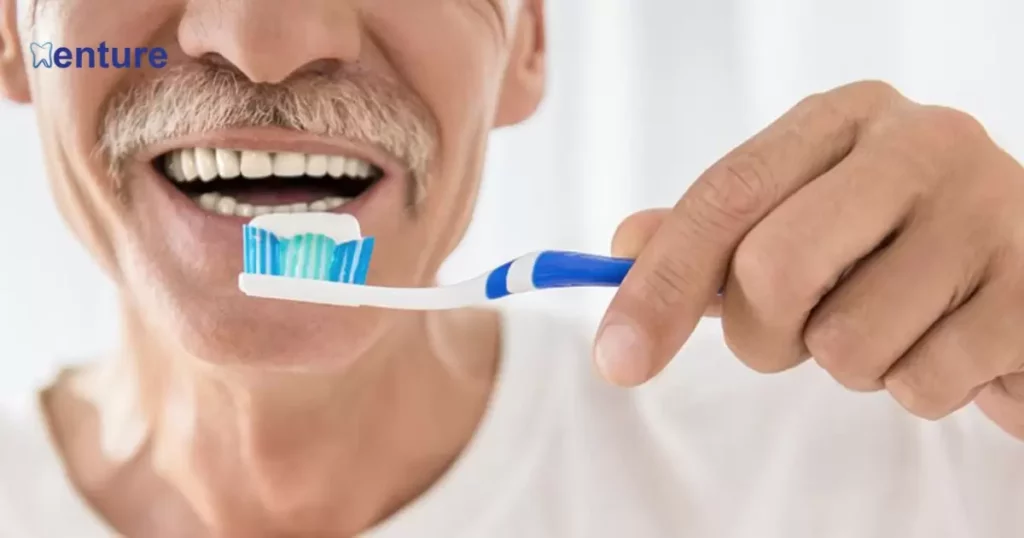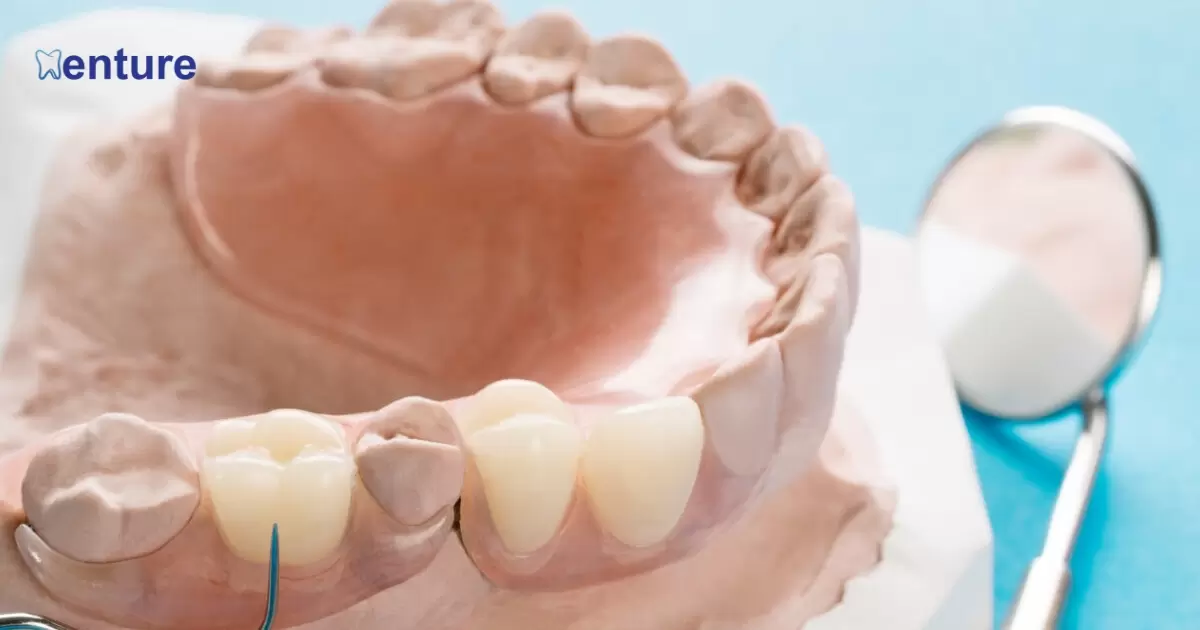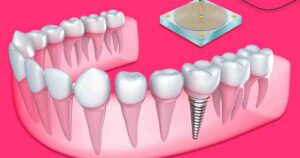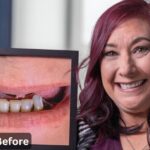Dentures are a common and invaluable solution for individuals who have lost their natural teeth, providing the ability to eat, speak, and smile confidently. Over time, these dental appliances may undergo wear and tear, which raises a crucial question: how often should dentures be replaced?
The longevity of dentures primarily depends on various factors, making it a unique experience for each wearer. One of the key determinants is the type of denture. Full dentures, designed to replace an entire arch of teeth, often have a longer lifespan compared to partial dentures, which replace only a few missing teeth.
As dentures age, the need for replacement becomes inevitable to maintain oral health and overall well-being. In the following discussion, we will delve deeper into these factors and provide valuable insights on the optimal frequency for denture replacement.
Your Dentures Feel Loose or Are Falling Out
If your dentures feel loose or are falling out, it’s important to address this issue promptly. Loose dentures can cause discomfort and affect your ability to eat and speak comfortably. To resolve this problem, visit your dentist.
They can adjust or refit your dentures to ensure a snug and secure fit. Ignoring loose dentures can lead to further oral health complications, so seek professional help as soon as you notice any issues with your dentures.
You’re Having Difficulty Speaking Clearly
If you find yourself having difficulty speaking clearly, it might be due to various factors. Nervousness or anxiety can sometimes cause your words to stumble or become unclear. Certain medical conditions or physical ailments could also affect your speech, making it challenging to articulate your thoughts effectively.
It’s essential to stay calm and composed if you’re experiencing trouble with your speech. Taking deep breaths and speaking slowly can help you regain control and improve your clarity.
Your Dentures Are Causing Discomfort or Harming Your Gum Tissue
If your dentures hurt or irritate your gums, it’s essential to seek help. Discomfort means something may need adjustment. Dentures should fit comfortably, and not cause pain.
Ignoring the problem can harm your gum tissue. Ill-fitting dentures can lead to sores or infections. Don’t endure the discomfort; consult your dentist for a solution to keep your smile healthy and pain-free.
Your Dentures Are Damaged or Discolored
If your dentures look damaged or have changed color, it’s time to take action. Damaged dentures can cause discomfort, affect your ability to eat, and even harm your oral health. Discolored dentures can be a sign of poor hygiene or wear and tear. When facing such issues, seeking help from a clinic that specializes in clinic make dentures is essential to ensure your dentures are repaired or replaced promptly.
Don’t hesitate to contact your dentist for a check-up or to discuss possible repairs or replacements. Your smile and comfort are important, so ensure your dentures are in good shape.
How often should you change your dentures?
The frequency of denture replacement varies, but typically, it’s recommended to get new dentures every 5 to 7 years. Over time, your mouth changes, and dentures may become less comfortable or loose. Regular check-ups with your dentist can help determine when it’s time for a replacement.
It’s crucial to listen to your dentist’s advice and keep an eye on any signs of wear or discomfort. Changing your dentures as needed ensures a better fit, improved oral health, and a more confident smile.
Signs Indicating the Need for Denture Replacement
| Signs | What It Indicates |
| Loose Dentures | Loose dentures can cause discomfort and difficulty while eating or speaking. They may need adjustments or replacements. |
| Difficulty Speaking Clearly | Difficulty in speech may be due to ill-fitting dentures. It’s essential to address this issue for improved articulation. |
| Gum Discomfort or Irritation | If your dentures cause discomfort or gum irritation, seek professional help to avoid potential sores or infections. |
| Damaged or Discolored Dentures | Damaged or discolored dentures can affect your oral health and overall comfort. Contact your dentist for possible repairs or replacements. |
Denture Maintenance and Upkeep
Dentures require regular care. To keep them clean, brush them daily with a denture brush and mild soap. Avoid using toothpaste, which can be too abrasive. Soak them overnight in a denture cleaner or water to prevent drying out. Remember to handle them gently, as dentures can break easily.
Regular checkups with your dentist are essential. They can make adjustments and ensure a proper fit. If you notice any damage or discomfort, don’t hesitate to seek professional help. With proper maintenance, your dentures can provide a comfortable and confident smile for years to come.
Daily Denture Care
Proper daily denture care is essential for maintaining good oral hygiene. Start by rinsing your dentures with warm water after every meal to remove food particles. Brush your dentures gently using a soft-bristle brush and mild soap to clean them thoroughly, and make sure to avoid using toothpaste as it can be abrasive.
It’s important to soak your dentures in a denture cleaning solution overnight to keep them fresh. Always handle your dentures with care to avoid any damage, and visit your dentist regularly for check-ups to ensure they fit well and are in good condition.
Good Hygiene Habits

- Good hygiene habits are essential for staying healthy and feeling fresh. Brushing your teeth at least twice a day with fluoride toothpaste removes food particles and prevents cavities.
- Daily flossing helps clean between teeth where a toothbrush can’t reach
- Don’t forget to brush your tongue for fresher breath.
- Regular hand washing and showering keep your body clean and reduce the spread of germs.
- Clean clothes, including underwear and socks, are crucial for overall hygiene.
- Taking care of personal hygiene not only makes you feel good but also promotes well-being.
Avoid Harmful Chemicals
It’s important to avoid harmful chemicals in your daily life. These chemicals can be found in cleaning products, pesticides, and even some cosmetics. When you steer clear of them, you help protect your health and the environment. Choose natural alternatives and read product labels to make safer choices.
In your home, opt for eco-friendly cleaners and reduce pesticide use. When shopping for personal care products, go for those with fewer chemicals. By taking these simple steps, you can minimize your exposure to harmful chemicals and lead a healthier, greener lifestyle.
Never Perform Self-Adjustments
Performing self-adjustments on complex machinery is risky. It’s crucial to remember that tinkering with intricate systems without proper knowledge can lead to serious problems. Even a small mistake can cause damage or, worse, result in accidents.
Always consult a professional when adjustments are needed, ensuring safety and efficiency. So, never perform self-adjustments and leave it to the experts. In daily life, self-adjustments are also important. Trying to change who you are or how you feel without proper guidance can be harmful. Seek support from friends, family, or professionals when needed
Storing Dentures
Storing dentures properly is essential for maintaining oral health. When you’re not wearing your dentures, keep them in a clean container filled with lukewarm water. This prevents them from drying out and warping.
Avoid using hot water, as it can damage the denture material. make sure to clean your dentures thoroughly before storing them to prevent the buildup of bacteria and plaque. Proper storage and maintenance will help keep your dentures in good condition and your smile looking its best.
Visit the Dentist Regularly
Regular visits to the dentist are crucial for your oral health. During these appointments, your dentist can check for any issues or early signs of dental problems.
These visits help prevent serious dental conditions, like cavities or gum disease, and ensure that your teeth and gums stay healthy. Maintaining a consistent schedule of dental check-ups can save you from more significant problems in the long run, keeping your smile bright and your oral health in top shape.
How Often Do Dentures
How often you should replace dentures depends on several factors, including the type of denture. Should Dentures Be Replaced Full dentures, which replace all your teeth, generally last longer than partial dentures, which only replace a few teeth. The quality of the materials used and the level of care you provide also influence their lifespan.
It’s important to pay attention to signs that your dentures need replacement. If you notice them becoming uncomfortable, or loose, or if you experience difficulty chewing, it could be time to consider new dentures.
FAQ’s
How often should dentures be replaced?
Dentures typically last 5 to 7 years, but the exact timeframe can vary depending on various factors such as the type of denture and how well they are maintained.
Can dentures last a lifetime?
Dentures are not designed to last a lifetime. Over time, the fit may change due to natural jaw changes and wear and tear, making replacement necessary at some point.
What are the signs that dentures need replacement?
Signs include discomfort, loose fit, difficulty chewing, visible wear and tear like cracks, chips, or staining, and changes in speech.
How can I extend the lifespan of my dentures?
Regular cleaning, proper storage, and regular dental check-ups can help extend the life of your dentures. Good care can prevent staining, odors, and bacterial growth.
Can dentures be repaired instead of replaced?
Minor issues can often be repaired, but as dentures age, replacement becomes inevitable for maintaining oral health and functionality. Repair kits and adhesives are temporary solutions to consider.
Conclusion
The question of how often dentures should be replaced depends on several factors, including the type of denture, quality, and wear and tear. Regular check-ups with your dentist are essential to assess your condition.
Remember, when your dentures feel loose, are visibly damaged, or no longer provide a comfortable fit, it’s time to consider replacement. By staying vigilant and seeking professional advice, you can ensure that your dentures continue to enhance your quality of life and oral health for years to come.











